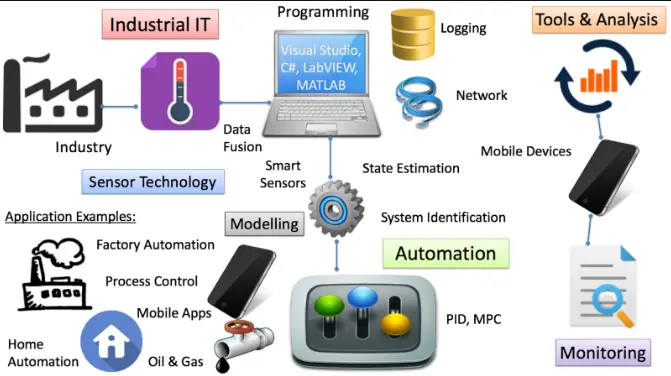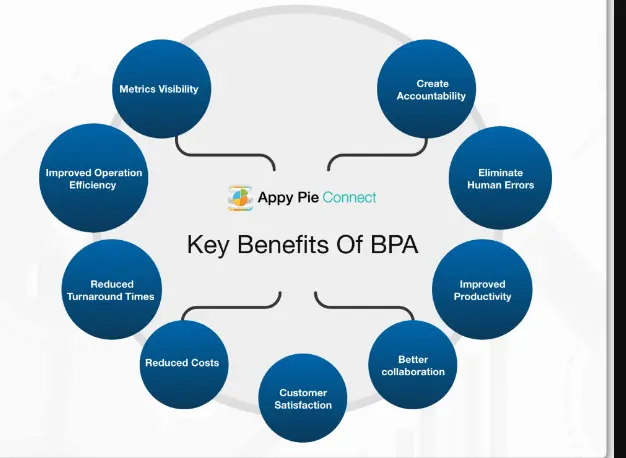Examples Of Automation In Everyday Life In Business And Industry
What is Automation? Automation is the use of technology to perform tasks more efficiently and accurately. This can include using machines and systems to get the job done for people or using technology to streamline and streamline manual processes.
- Automation is a technique used to create a system that can operate autonomously with little or no human intervention. The main goal of automation is to reduce human effort.
- Automation is often used in various fields such as industry, manufacturing, construction and information technology.

Best Examples Of Automation in Real Life
Some best known automation examples are:
-
Industrial robots
They are used in industry to perform repetitive and dangerous tasks.
-
Air traffic control systems
They are used for air traffic control and flight safety.
-
Virtual assistants
these are programs that can perform simple tasks and automatically answer questions.
-
Automatic irrigation systems
they are used for the automatic irrigation of gardens and fields.
-
Mail Delivery Systems
They Used to automatically send emails to a list of recipients.
-
Airline reservation systems
They are used to automatically book airline tickets over the Internet.
-
Cleaning robots
Automation system are used to automatically clean floors.
-
Automatic Charging Systems
They are Used in car parks and on highways to charge passing vehicles.
-
Manufacturing systems
These are used to automatically manufacture products.
-
Voice assistance systems
They are also used to complete tasks using voice commands.
Automation System Examples in Industrial Machinery
In a small industry, all tasks are done manually and managed by a workforce; However, when it comes to large-scale industries, where the production rate of goods is relatively higher, the scenario is different.

As the workload increases, the use of automatic robotic arms, conveyor belts and other related equipment becomes necessary.
Automated machines reduce the possibility of human error and allow work to be done at a rapid and steady pace.
Automatic Machinery Being Used in Agriculture Field
To improve the quality and quantity of agricultural products, a number of traditional agricultural machinery needs to be reformed.
For the convenience of farmers, many machines have been invented that can quickly perform boring work with high precision.
Some examples of automatic machines currently in use in agriculture include harvesters, irrigation systems, cultivators, autonomous tractors, etc. A significant advantage of using these machines is that they automatically determine the need for an operation and perform the task at the command of the controller.
Automation Examples in Business

Employee Onboarding
The recruitment process is a long and difficult task that requires a lot of resources. This includes writing forms, scheduling training sessions, assigning mentors, gathering documents, and scheduling meetings – all of which take up valuable time. Instead, you can use HRMS.
Automate Your Internal Communication
Here are some examples of business automation based on communication that happens almost daily.
- Automate meeting reminders for your team
- Sync data with meeting slides
- Automatic tracking of activities at specific intervals
- Collect daily feedback on wins and bans
- Share onboarding materials with new employees
- Reporting dashboard
- Automate self-assessment and performance tracking
Email Automation
- Save time by building email campaigns quickly
- Send personalized emails that resonate with your customers and prospects
- Save hours a day by not manually sending emails or SMS
Five Benefits Of Automation
Greater Efficiency:
Automation can complete tasks faster and more accurately than humans, increasing efficiency and reducing production time and costs.
Better quality:
Automation reduces the possibility of error in carrying out tasks, which can improve the quality of the final product.
Greater safety:
Automation can free people from dangerous tasks and reduce the risk of workplace accidents.
Greater flexibility: Automation makes it easier to change and adapt manufacturing processes to meet customer needs.
Increase competitiveness:
Automation can help companies compete in the market by reducing costs and improving efficiency.
Increase productivity:
Automation frees people from repetitive tasks and allows them to focus on more important and creative tasks, which can increase productivity.
You May Also See Latest Posts:
- Types of Fractals With Examples Structure And Characteristics
- Examples of Friction in Everyday Life
- Different Types Of Alkenes And Examples in Chemistry
- What is Technology?
- What is nanotechnology?
- Robotics
- Database and types of database Computer
External Source:
- https://www.trendhunter.com/slideshow/automated-technology
- https://www.techopedia.com/definition/139/hr-management-system-hrms
